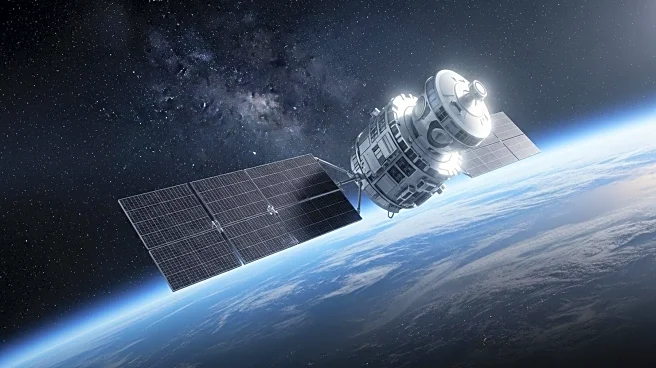What's Happening?
NASA has been reclassified as primarily an intelligence and national security agency following a recent executive order. This order eliminates union rights for NASA employees and designates the agency's primary functions to include intelligence, counterintelligence, investigative, or national security work. The executive order also states that Chapter 71 of title 5, United States Code, cannot be applied to NASA in a manner consistent with national security requirements. This shift marks a significant change in NASA's operational focus, moving away from its traditional roles in science and exploration.
Why It's Important?
The reclassification of NASA as an intelligence and national security agency has significant implications for its workforce and operational priorities. By removing union rights, the executive order may affect employee conditions and job security, potentially leading to unrest among NASA staff. The shift in focus could also impact NASA's budget allocations, with resources potentially being redirected from scientific research and exploration to intelligence and security functions. This change may influence the agency's collaborations with other countries and private sector partners, as national security considerations become more prominent.
What's Next?
The reclassification of NASA is likely to prompt discussions and reactions from various stakeholders, including Congress, NASA employees, and the scientific community. Congressional efforts to increase NASA's funding may face challenges as the agency's priorities shift. Additionally, NASA employees and unions may seek legal avenues to contest the removal of union rights. The broader space community will be watching closely to see how this change affects NASA's role in international space exploration and its partnerships with other space agencies.
Beyond the Headlines
This development raises ethical and legal questions about the balance between national security and scientific exploration. The reclassification could lead to long-term shifts in NASA's mission and its perception globally, potentially affecting international collaborations and the agency's reputation as a leader in space exploration. The focus on intelligence and security may also influence the types of projects and research NASA undertakes, with implications for the future of space science.










